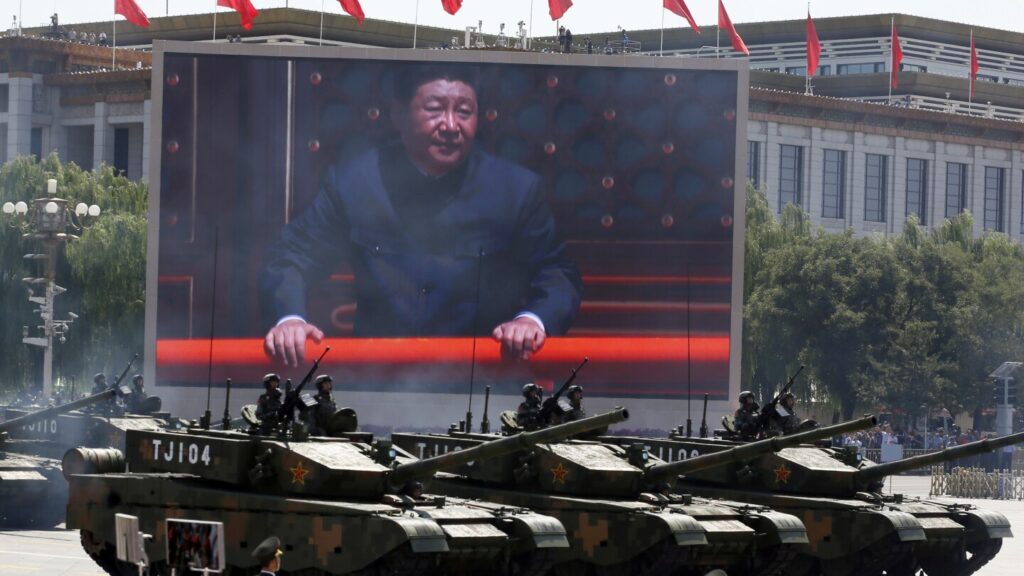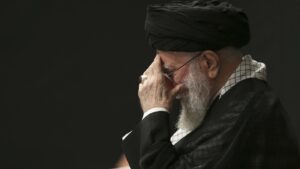
When Israel launched an attack on Iran nearly two weeks ago, the Chinese government, a longstanding ally of Iran, swiftly responded with a verbal condemnation of the attacks. Chinese President Xi Jinping engaged in diplomatic outreach, speaking with Russian President Vladimir Putin to advocate for a ceasefire. Additionally, China’s foreign minister communicated with his Iranian counterpart. However, China’s involvement remained largely rhetorical, as it refrained from providing any material support to Iran.
Despite its status as a significant global power and its aspirations for a more prominent role in international affairs, China chose not to offer military aid to Iran or become directly involved in the conflict. This decision highlights the constraints China faces in the Middle East, where its economic interests are substantial, but its military influence is minimal.
China’s Strategic Calculations in the Middle East
Jude Blanchette, director of the China Research Center at RAND, noted, “Beijing lacks both the diplomatic capabilities and the risk appetite to quickly intervene in, and to think it can successfully navigate, this fast-moving and volatile situation.” The complex political landscape of the Middle East, where China has significant economic and energy stakes, makes Beijing hesitant to take bold actions.
Zhu Feng, dean of the School of International Relations at Nanjing University, emphasized that instability in the Middle East is detrimental to China’s interests. “From China’s point of view, the Israel-Iran conflicts challenge and impact China’s business interests and economic security,” Zhu stated. This perspective underscores China’s cautious approach, focusing on stability to safeguard its economic investments.
Economic Interests and Diplomatic Maneuvers
Following discussions in the Iranian parliament about potentially closing the Strait of Hormuz, China voiced opposition to such a move. Guo Jiakun, a spokesman for the Chinese foreign ministry, stated, “China calls on the international community to step up efforts to de-escalate conflicts and prevent regional turmoil from having a greater impact on global economic development.”
U.S. President Donald Trump, in a social media post following the ceasefire announcement, remarked, “China can now continue to purchase Oil from Iran,” suggesting that the ceasefire would stabilize Iranian oil production. The U.S. Energy Information Administration’s 2024 report estimated that 80% to 90% of Iran’s oil exports are directed to China, highlighting the critical nature of this energy relationship.
“China’s Gulf footprint is commercial, not combat-ready. When missiles fly, its much-touted strategic partnership with Iran shrinks to statements,” said Craig Singleton, senior China fellow at the Foundation for Defense of Democracies.
Singleton further explained that Beijing’s response has been limited to “steady oil buys and ritual calls for ‘dialogue’,” without extending military support or financial aid to Iran.
China’s Diplomatic Stance and Global Implications
China has consistently aligned itself with Iran, advocating for dialogue since the conflict began. At the United Nations, China, along with Russia and Pakistan, proposed a draft resolution condemning attacks on Iran’s nuclear facilities and calling for an immediate ceasefire. However, the resolution faces a likely veto from the United States.
Chinese Foreign Minister Wang Yi communicated with Iranian Foreign Minister Abbas Araghchi, condemning Israel’s actions and expressing China’s willingness to facilitate dialogue. Wang also engaged with foreign ministers from Oman and Egypt, both crucial mediators in the region. Meanwhile, President Xi and President Putin agreed to maintain communication and work towards de-escalation.
China’s strategic interests in Iran are significant, given Iran’s role in the Belt and Road Initiative and its membership in the Shanghai Cooperation Organization. Despite these ties, China’s approach remains cautious, avoiding direct involvement in the conflict.
Conclusion: Balancing Act in a Complex Region
The Soufan Center, a New York-based organization focusing on global security challenges, analyzed that Beijing’s support for its partners is constrained by a complex matrix of interests. These include the desire to avoid alienating major economic partners and escalating tensions with the West.
As China navigates its role in the Middle East, it continues to balance its economic interests with diplomatic caution, emphasizing dialogue and stability over military engagement. The ongoing conflict between Israel and Iran serves as a test of China’s strategic patience and its ability to maintain a delicate balance in a volatile region.
AP researcher Yu Bing in Beijing and writers Edith M. Lederer at the United Nations and Josh Boak in Washington contributed to this report.






